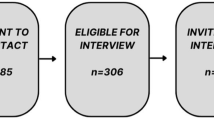Abstract
Many private companies offer direct-to-consumer (DTC) genetic testing services. Some tests may detect severe and highly penetrant monogenic disorders, while other tests are for genetic variants found associated with increased susceptibility for common and complex diseases in large-scale population studies. Through its Public and Professional Policy committee followed by member and expert consultation, the European Society of Human Genetics has developed the following policy on advertising and provision of predictive genetic tests by such DTC companies: (1) clinical utility of a genetic test shall be an essential criterion for deciding to offer this test to a person or a group of persons; (2) laboratories providing genetic tests should comply with accepted quality standards, including those regarding laboratory personnel qualifications; (3) information about the purpose and appropriateness of testing should be given before the test is done; (4) genetic counselling appropriate to the type of test and disease should be offered; and for some tests psychosocial evaluation and follow-up should be available; (5) privacy and confidentiality of sensitive genetic information should be secured and the data safely guarded; (6) special measures should be taken to avoid inappropriate testing of minors and other legally incapacitated persons; (7) all claims regarding genetic tests should be transparent; advertisement should be unbiased and marketing of genetic tests should be fair; (8) in biomedical research, health care and marketing, respect should be given to relevant ethical principles, as well as international treaties and recommendations regarding genetic testing; and (9) nationally approved guidelines considering all the above-mentioned aspects should be made and followed.
Similar content being viewed by others
Log in or create a free account to read this content
Gain free access to this article, as well as selected content from this journal and more on nature.com
or
References
Additional Protocol to the Convention on Human Rights and Biomedicine, concerning Genetic Testing for Health Purposes. Council of Europe, Strasbourg, 2008. Available from http://conventions.coe.int/Treaty/EN/Treaties/Html/203.htm.
Ashley EA, Butte AJ, Wheeler MT et al: Clinical assessment incorporating a personal genome. Lancet 2010; 375: 1525–1535.
Brand A : Integrative genomics, personal-genome tests and personalized healthcare: the future is being built today. Eur J Hum Genet 2009; 17: 977–978.
Directive 98/79/EC of the European Parliament and of the Council of 27 October 1998 on in vitro diagnostic medical devices. Available from http://eur-lex.europa.eu/LexUriServ/LexUriServ.do?uri=CELEX:31998L0079:en:HTML.
European Society of Human Genetics: Genetic testing in asymptomatic minors: recommendations of the European Society of Human Genetics. Eur J Hum Genet 2009; 17: 720–721.
Human Genetics Commission: A common framework of principles for direct-to-consumer genetic testing services. Consultation document, 2010. Available from http://www.hgc.gov.uk/UploadDocs/Contents/Documents/Principles%20consultation%20final.pdf.
Kuehn BM : NIH launching genetic test registry. JAMA 2010; 303: 1685.
Lwoff L : Council of Europe adopts protocol on genetic testing for health purposes. Eur J Hum Genet 2009; 17: 1374–1377.
OECD Guidelines for Quality Assurance in Genetic Testing: Organisation for Economic Co-operation and Development, 2007. Available from http://www.oecd.org/dataoecd/43/6/38839788.pdf.
Patch C, Sequeiros J, Cornel MC : Genetic horoscopes: is it all in the genes? Points for regulatory control of direct-to-consumer genetic testing. Eur J Hum Genet 2009; 17: 857–859.
Patch C, Sequeiros J, Cornel MC : Direct to consumer genetic tests. Eur J Hum Genet 2009; 17: 1111.
Van Ommen GB, Cornel MC : Recreational genomics? Dreams and fears on genetic susceptibility screening. Eur J Hum Genet 2008; 16: 403–404.
Author information
Authors and Affiliations
Consortia
Rights and permissions
About this article
Cite this article
European Society of Human Genetics. Statement of the ESHG on direct-to-consumer genetic testing for health-related purposes. Eur J Hum Genet 18, 1271–1273 (2010). https://doi.org/10.1038/ejhg.2010.129
Published:
Issue date:
DOI: https://doi.org/10.1038/ejhg.2010.129
This article is cited by
-
Revisiting informed consent in forensic genomics in light of current technologies and the times
International Journal of Legal Medicine (2023)
-
Direct to consumer genetic testing in Denmark—public knowledge, use, and attitudes
European Journal of Human Genetics (2021)
-
Distributed Ledger Technology in genomics: a call for Europe
European Journal of Human Genetics (2020)
-
Direct to consumer genetic testing—law and policy concerns in Ireland
Irish Journal of Medical Science (1971 -) (2018)
-
Legislation of direct-to-consumer genetic testing in Europe: a fragmented regulatory landscape
Journal of Community Genetics (2018)


